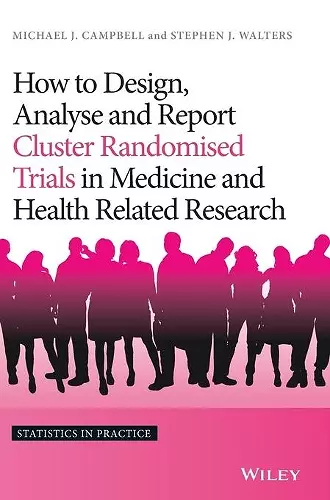How to Design, Analyse and Report Cluster Randomised Trials in Medicine and Health Related Research
Michael J Campbell author Stephen J Walters author
Format:Hardback
Publisher:John Wiley & Sons Inc
Published:16th May '14
Currently unavailable, and unfortunately no date known when it will be back

A complete guide to understanding cluster randomised trials
Written by two researchers with extensive experience in the field, this book presents a complete guide to the design, analysis and reporting of cluster randomised trials. It spans a wide range of applications: trials in developing countries, trials in primary care, trials in the health services. A key feature is the use of R code and code from other popular packages to plan and analyse cluster trials, using data from actual trials. The book contains clear technical descriptions of the models used, and considers in detail the ethics involved in such trials and the problems in planning them. For readers and students who do not intend to run a trial but wish to be a critical reader of the literature, there are sections on the CONSORT statement, and exercises in reading published trials.
- Written in a clear, accessible style
- Features real examples taken from the authors’ extensive practitioner experience of designing and analysing clinical trials
- Demonstrates the use of R, Stata and SPSS for statistical analysis
- Includes computer code so the reader can replicate all the analyses
- Discusses neglected areas such as ethics and practical issues in running cluster randomised trials
How to Design, Analyse and Report Cluster Randomised Trials in Medicine and Health Related Research provides an excellent reference tool and can be read with profit by statisticians, health services researchers, systematic reviewers and critical readers of cluster randomised trials.
“Overall, the reviewers are enthusiastic about the book. The authors have covered all important areas of cRCTs, using a practical and pragmatic approach to the topic. The code is helpful for the practical implementation of the examples. The material is simple to understand, which will appeal to applied researchers, not only to biostatisticians. As such, we clearly recommend this book to all researchers interested in cRCTs. For biostatisticians involved in cRCTs and investigators of cRCTs, it is a must-have on the bookshelf.” (Biometrical Journal, 1 May 2015)
ISBN: 9781119992028
Dimensions: 252mm x 178mm x 18mm
Weight: 572g
272 pages